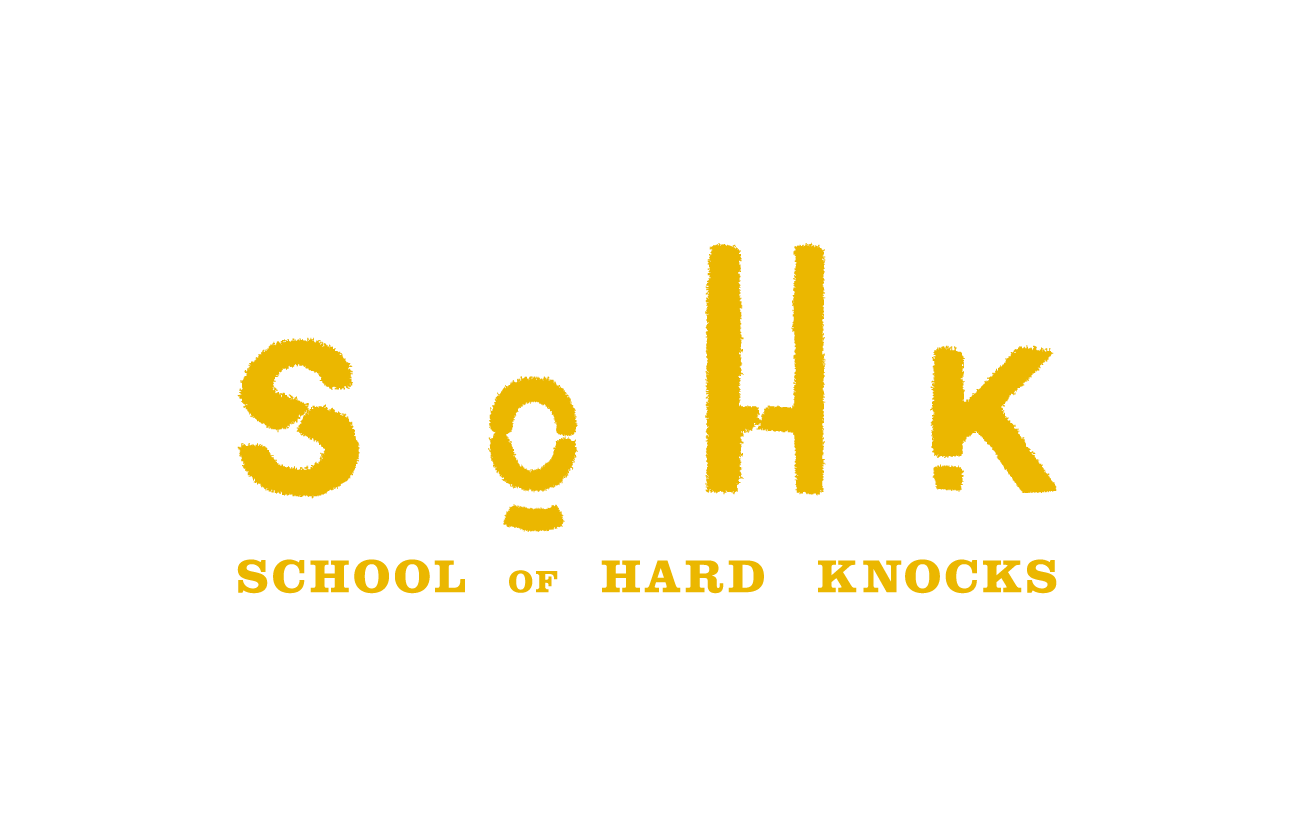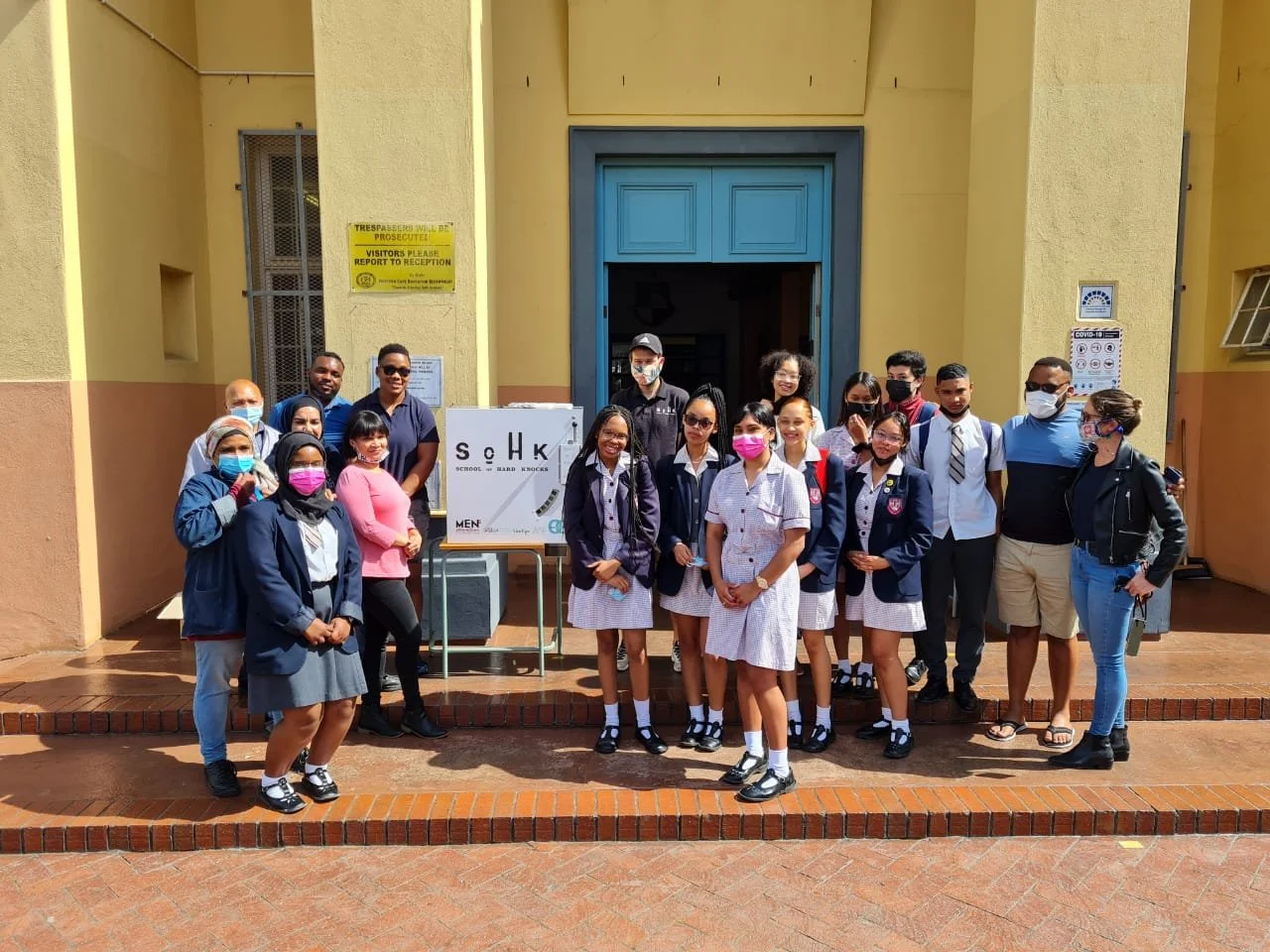In a country overwhelmed by crisis, poverty, violence, and mental health challenges, it’s easy to feel powerless.
“What can I possibly do that would really make a difference?”
Here’s the answer:
Show up.
With your time.
With your energy.
With your presence.
At School of Hard Knocks (SOHK), we’ve learned something profound:
You don’t have to be rich to be generous.
You don’t need to have a title to lead.
You don’t need a platform to change a life.
You just need to care — and be willing to act on that care.
This blog is a call-in. A celebration. A reminder that in 2025, the greatest gift you can give to South Africa’s youth may not be your money — but your commitment.
Let’s talk about why your time, energy, and support are our most powerful fuel — and how you’re helping rewrite futures, one learner, one coach, and one courageous act at a time.
The Heart of SOHK: Human Connection Before Anything Else
School of Hard Knocks was never just about rugby or workshops.
It was — and is — about relationship.
We exist to provide:
Consistent adult presence
Mental health and behavioural support
Emotional safety
Purpose and belonging
…to children and adolescents who have been left behind by a system that doesn’t always see them.
Our year-long programmes in no- and low-fee schools don’t just keep students busy — they help them heal, grow, and believe in themselves again.
None of that happens without the people behind the work.
Why Donating Time = Saving Lives
In communities where trauma, violence, and instability are the norm, your time can be a lifeline.
When you show up to mentor, coach, facilitate, or even simply listen, you send an unspoken message:
“You matter.”
“I care enough to be here.”
“You don’t have to go through this alone.”
Every week, SOHK volunteers and staff spend hundreds of hours:
Holding emotional space for students in group sessions
Coaching on the rugby field with compassion and consistency
Facilitating NxtGenMen and NxtGenWomxn groups
Offering lay-counselling and mental health support
Delivering food parcels, checking in on home life, and providing practical help
These aren’t abstract gestures. They’re acts of resistance — against apathy, neglect, and generational harm.
What Support Looks Like in 2025
In just the first half of 2025, your support helped us:
Work with 1,200+ students across schools in Cape Town, Gauteng, and the Eastern Cape
Deliver over 6,000 hours of mental health and character-building workshops
Facilitate 120+ NxtGenMen and NxtGenWomxn sessions, tackling gender-based violence, emotional literacy, and healthy identity
Provide weekly coaching and mentorship to over 300 boys and girls
Train new youth leaders and peer coaches from within the communities we serve
Expand our safeguarding and wellbeing infrastructure for even greater impact
This is not charity.
It’s community building — and every volunteer, donor, partner, and advocate is part of this growing wave.
Donating Money vs. Donating Yourself — Both Are Needed
Let’s be real: running programmes takes funding. We are deeply grateful to our financial supporters, grantors, and partners.
But often, the most powerful donation isn’t financial — it’s relational.
A student won’t remember the exact Rand value of your contribution.
They will remember:
The day you sat and listened
The feedback you gave during a rugby drill
The way you encouraged them to speak their truth during a group session
The high-five that made them feel like a winner, even after a loss
This is what we mean when we say you don’t have to do everything — but you can do something.
Ways to Donate Your Time or Energy in 2025
Whether you’ve got a free afternoon or a lifelong passion, there’s a way for you to contribute to SOHK’s mission:
✅ Volunteer with Us
Mentors for boys and girls in schools
Workshop co-facilitators for emotional literacy, career prep, and gender dialogue
Support coaches for rugby or sports-based sessions
Event volunteers for community days or fundraiser events
✅ Share Your Skills
Are you a social worker, psychologist, teacher, artist, or youth worker?
We welcome guest facilitators and partners who want to co-create content or offer healing workshops.
✅ Be a Community Connector
Introduce us to schools, organizations, or funders who could benefit from collaboration
Spread our mission on social media
Host a SOHK info night or fundraiser in your community
✅ Advocate
Talk to your workplace about funding or volunteering as a team
Recommend our NxtGen programmes to schools, churches, or youth groups
Add your voice to the national conversation on youth mental health and gender equity
What You Get in Return (Besides Warm Fuzzies)
Donating your time and energy doesn’t just change others — it changes you.
You’ll find:
A renewed sense of purpose
A community of likeminded change-makers
A deeper understanding of resilience, youth voice, and real transformation
The joy of watching young people grow — not because you “saved” them, but because you showed up as someone who believes in their brilliance
You may walk in to volunteer thinking you’re the one giving.
But you’ll leave realizing you’ve received something even greater.
Our Vision for the Rest of 2025 — And How You Can Be Part of It
We’re just getting started.
With your continued support, we aim to:
Launch 5 new SOHK school partnerships
Train 50 new youth peer mentors
Expand NxtGenMen and NxtGenWomxn across 3 more provinces
Integrate trauma-informed training for all coaches and volunteers
Develop after-school wellbeing hubs for at-risk youth
You don’t need to do it all.
But we need all of us to do something.
Final Thought: We Rise Together
It’s easy to feel helpless in the face of big issues: poverty, trauma, inequality, violence.
But there’s something more powerful than helplessness: collective action.
When you donate your time to a cause like School of Hard Knocks, you are doing more than helping.
You are building the South Africa you want to see.
One where:
Every child feels seen
Every boy learns he’s allowed to cry
Every girl knows her voice matters
Every school becomes a hub for healing, hope, and potential
That is our 2025 vision. And we want you in it.
Join the Movement. Lend Your Strength.
Want to volunteer, partner, or contribute your skills to SOHK?
Reach out to us — we’re ready to welcome you.
📍 www.schoolofhardknocks.co.za
📩 info@schoolofhardknocks.co.za
Together, we are the knock that opens the door.






